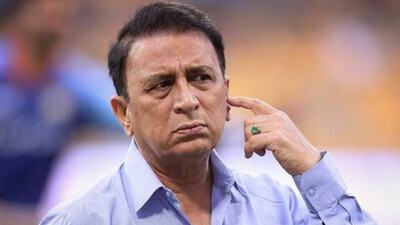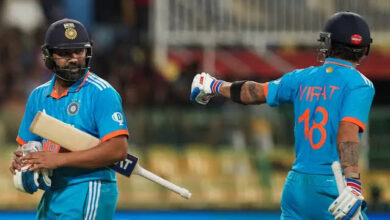Sunil Gavaskar Criticizes Modern Fast Bowling Practices: “Turning a Blind Eye”

Legendary Indian cricketer Sunil Gavaskar has expressed his discontent with what he views as an unfair modern practice in cricket, specifically targeting the habit of fast bowlers taking refreshments while fielding near the boundary. In his column for Sportstar, Gavaskar criticized this practice, arguing that it provides an undue advantage to bowlers while batters do not receive similar breaks.
Gavaskar highlighted his concerns about the practice, which allows bowlers to receive drinks on the boundary line after completing their over, in addition to the scheduled drinks breaks during matches. He accused cricket authorities of “turning a blind eye” to this issue, making it a common yet controversial aspect of the sport.

“In cricket, the modern practice of bowlers, especially the quick ones, getting a refreshing drink on the boundary line where they go to field after completing their over is an example of the authorities turning a blind eye to the practice,” Gavaskar wrote.
According to ICC rules, players are permitted to take drinks outside of scheduled breaks as long as it does not disrupt play or bother other cricketers. The rules state: “An individual player may be given a drink either on the boundary edge or at the fall of a wicket, on the field, provided that no playing time is wasted. No other drinks shall be taken onto the field without the permission of the umpires. Any player taking drinks onto the field shall be dressed in proper cricket attire.”
However, Gavaskar pointed out that this rule seems to favor bowlers disproportionately. “Why have the drinks interval then if bowlers are going to get themselves hydrated after going flat out for six deliveries? Mind you, the batter doesn’t get the chance to have a drink after an over where they may have taken eight runs or so, which are all run,” he noted.
Gavaskar argued that stamina and endurance are crucial aspects of cricket, regardless of the format. He suggested a return to the traditional approach where drinks were only taken after every hour of play, and only with the opposition captain’s and umpires’ consent. “Cricket is also a game where stamina and endurance matter no matter what the format is, so frankly, it should go back to the days when drinks were taken only after every hour of play and before that only with the permission of the opposition captain and umpires,” he added.



